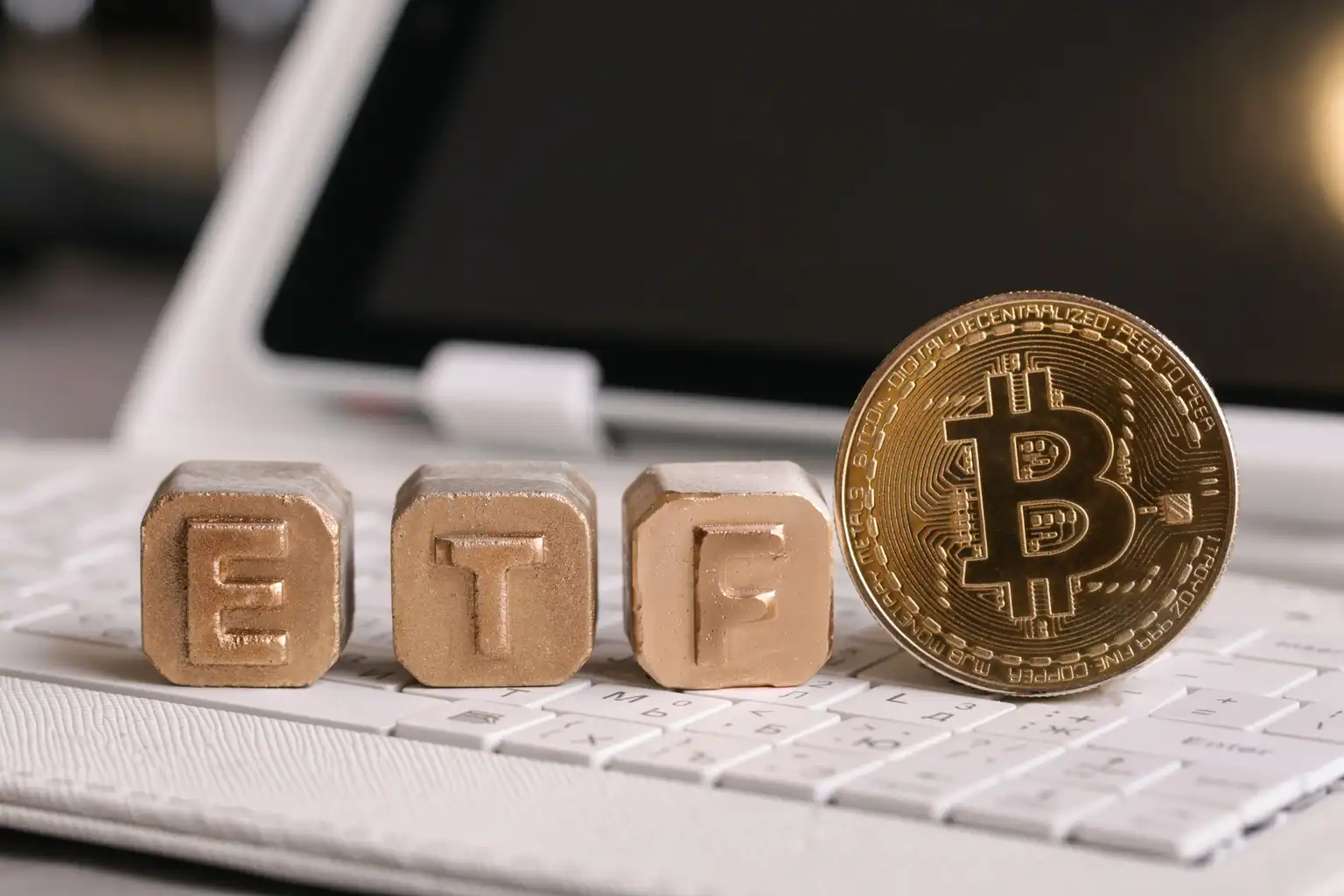Exchange-traded funds (ETFs) have had remarkable inflows in recent months, with a total of about $122 billion.This spike in investment is a part of a larger pattern that shows rising investor trust in cryptocurrency assets and the growing recognition of Bitcoin as a valid investment instrument. As Bitcoin ETFs Reach $122 become more popular, they provide investors with a more conventional means of getting exposure to the cryptocurrency market without having to deal with the hassles of buying or holding Bitcoin directly.
Bitcoin ETFs Convenient Way to Invest in Bitcoin
Investment funds that track the price of Bitcoin and trade on conventional stock exchanges are known as Bitcoin ETFs. They enable investors to purchase fund shares, which hold the underlying Bitcoin. This allows investors to be exposed to changes in the price of Bitcoin without having to deal with the hassles of actual Bitcoin ownership, like managing wallets or exchanges. Bitcoin ETFs have grown in popularity among institutional and individual investors due to their ease of use.
And convenience.Bitcoin ETFs have been gaining traction ever since the first fund was authorized in Canada and Europe. But after the approval of multiple Bitcoin futures ETFs in 2021 and, more recently, the expectation of spot Bitcoin ETFs, the U.S. market has experienced the biggest upswing. Once they are approved by U.S. regulators, spot Bitcoin ETFs—which track the price of Bitcoin in real time—should have an even greater effect on the market.
Bitcoin ETFs Reach $122 Billion in Assets
Bitcoin ETFs currently have $122 billion in total assets under management, according to recent data. This is a huge gain from a few years ago when Bitcoin ETFs Reach $122 were new. In 2020, Bitcoin ETF AUM was barely $10 billion. This quick development shows the growing desire for structured, regulated Bitcoin exposure.Institutional investors have poured money into Bitcoin ETFs because they regard them as a safe and easy method to profit from Bitcoin. Increasing interest from hedge funds, family offices, and other professional.

Investment organizations indicates a market trend toward traditional investment vehicles. These funds should continue to attract capital as Bitcoin institutionalizes, legitimizing it as an asset class.Retail investors have helped Bitcoin ETFs expand. Many individual investors who are uncomfortable buying Bitcoin directly have appreciated ETFs’ simplicity and regulatory control. The widespread availability of Bitcoin ETFs on mainstream brokerage platforms allows investors to invest in Bitcoin without understanding its sophisticated technology.
Regulatory Support Fuels Bitcoin ETF Growth
Regulatory clarity has boosted Bitcoin ETF growth. Recent global regulatory actions have given investors more confidence in the bitcoin business. The SEC’s 2021 approval of Bitcoin futures ETFs signaled a move toward regulatory acceptance for the market.The market constantly monitors the SEC’s spot Bitcoin ETF approval proceedings. After these spot ETFs are approved, many experts expect more capital to enter the area. Bitcoin’s price is expected to rise further.
Due to market optimism. Bitcoin has always been volatile, but institutional players and Bitcoin ETFs have prompted some to feel that the market is maturing, perhaps stabilizing the price.Traditional financial institutions’ adoption of bitcoin helps Bitcoin ETFs. In recent years, BlackRock, Fidelity, and Grayscale have entered the Bitcoin ETF market, legitimizing it. The involvement of these companies shows their faith in Bitcoin and its future.
Bitcoin ETFs Drive Price and Market Growth
As the influx of capital into Bitcoin ETFs continues, it is likely to have a positive effect on the price of Bitcoin itself. ETFs are designed to track the price of the underlying asset, so as more capital flows into the ETFs, there is an increased demand for Bitcoin to be held within the funds. This drives up the price of Bitcoin as more shares are bought to meet the demand. The influx of institutional money into the Bitcoin space has already helped drive.

Bitcoin’s price to new all-time highs, and as more ETFs gain popularity, this trend may continue.Moreover, the continued growth of Bitcoin ETFs Reach $122 may encourage more retail investors to participate in the market. With more mainstream adoption, Bitcoin could become more integrated into global financial markets, further establishing its position as a store of value and an alternative asset class to traditional investments like stocks and bonds.
Bright Future for Bitcoin ETFs
With analysts forecasting sustained growth in the upcoming years, the future of Bitcoin ETFs appears bright. The AUM of Bitcoin ETFs may continue to increase as new funds. Are introduced and more institutional investors join the market, eventually reaching $150 billion or more. However,The way the industry develops will continue to be greatly influenced by the regulatory environment. The use of Bitcoin ETFs may significantly increase if spot ETFs.
Authorized in the United States.The general pattern suggests that Bitcoin is becoming more. Widely accepted as a valid asset class, and Bitcoin ETFs are essential to this development. Bitcoin ETFs are anticipated to establish themselves as a fundamental component. Of the cryptocurrency ecosystem as the market develops. Providing investors with a safe and regulated way to take part in the expanding digital asset market.
Summary
Investor confidence in Bitcoin as a genuine investment has boosted Bitcoin ETF assets under management to $122 billion. Institutional and individual investors are drawn to these funds because they offer Bitcoin exposure without ownership. The introduction of Bitcoin futures ETFs in 2021 and the possibility. Of spot Bitcoin ETFs have encouraged this rise, notably in the U.S. this trend is driven.
By institutional investors like hedge funds and BlackRock. And Fidelity bitcoin’s price has risen due to money flood into Bitcoin ETFs, and as. However, They become more widespread, adoption may increase. As new funds and spot ETFs are approved, Bitcoin ETFs might exceed $150 billion in assets. Bitcoin ETFs’ future will depend on regulatory certainty, solidifying their position in the cryptocurrency market.







